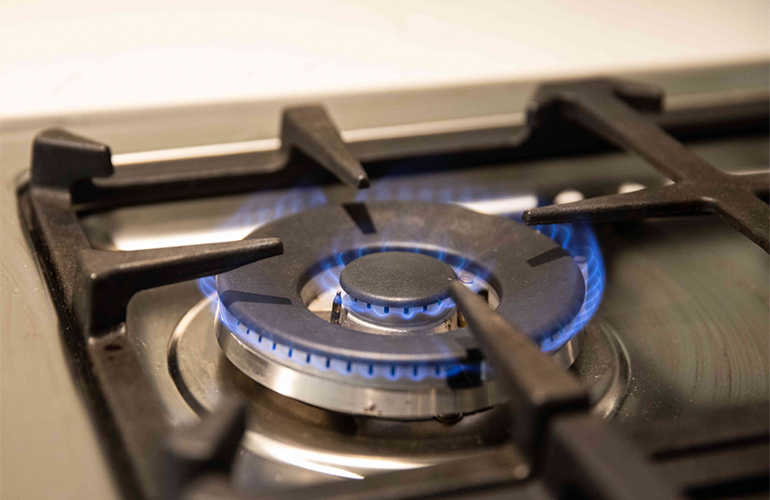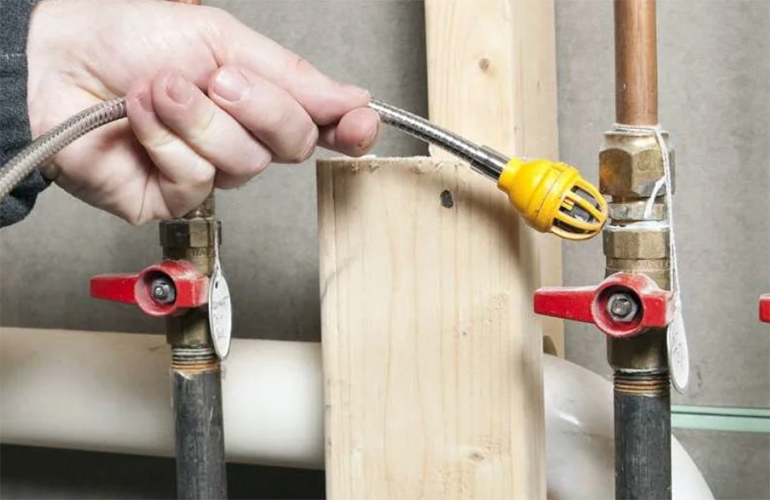
Gas safety is a matter of utmost importance in any household. While natural gas is a convenient energy source for heating, cooking, and more, it can pose significant dangers if not handled properly. Gas leaks, in particular, are potential disasters waiting to happen. In this article, we’ll discuss what to do if you suspect a gas leak and why taking immediate action is essential.
Potential Dangers of Gas Leaks
Gas leaks are not to be taken lightly. They can result in a range of life-threatening situations. Gas accumulating in an enclosed space can lead to explosions or fires with devastating consequences. Moreover, the gas, often a mixture of methane and other hydrocarbons, is highly flammable and poses a severe fire hazard. Beyond the immediate danger of combustion, gas leaks can also lead to long-term health issues due to exposure to toxic fumes, such as carbon monoxide. Thus, recognising the signs of a gas leak and knowing what to do are vital for your safety and those around you.
Recognising the Signs of a Gas Leak
Common Signs and Symptoms

Detecting a gas leak starts with recognising the signs and symptoms. Here are some common indicators to be aware of:
- Unusual Odour: Natural gas is odourless in its natural state, but utility companies add a chemical called mercaptan to give it a distinctive, unpleasant odour often described as rotten eggs. If you suddenly notice this smell, it could indicate a gas leak.
- Hissing or Whistling Sounds: Gas escaping from a damaged pipe or fitting can create hissing or whistling noises. If you hear such sounds, it’s a cause for concern.
- Dead or Dying Plants: Gas leaks can harm plants and nearby vegetation. If you notice your garden or indoor plants wilting or dying for no apparent reason, it might be due to a gas leak affecting the soil.
- Physical Symptoms: Gas leaks can also affect people. Symptoms like dizziness, nausea, headaches, and difficulty breathing may occur if exposed to gas in significant quantities.
Why These Signs Occur
Understanding why these signs occur is essential for quick detection and response. The odourant added to natural gas makes it easily detectable. Hissing or whistling sounds result from the pressurised release of gas. Plants wither because gas displaces oxygen from the soil, suffocating their roots. And the physical symptoms arise from inhaling gas or the lack of oxygen in the air.
Immediate Actions to Take
The Importance of Quick Response

When you suspect a gas leak, time is of the essence. Gas leaks can escalate rapidly, so taking immediate action can prevent a potentially catastrophic situation.
Step-by-Step Actions to Take When Suspecting a Gas Leak:
Evacuate the Premises: If you suspect a gas leak indoors, evacuate the building immediately. Refrain from investigating or collecting belongings.
Do Not Use Any Open Flames or Electrical Devices: Any source of open flames or electrical sparks can ignite gas. It means no lighting matches, candles, or using electrical switches, including turning lights on or off.
Ventilate the Area: If it’s safe to do so, open windows and doors to allow the gas to dissipate. Avoid using fans or any appliance that could create a spark.
Shut Off the Gas Supply: Locate your property’s main gas shut-off valve. Typically, this is near your gas meter. Turn the valve clockwise to shut off the gas supply. Only do this if it’s safe; otherwise, wait for professionals.
Call Emergency Services and the Gas Company: Dial emergency services (911 or your local emergency number) immediately to report the gas leak. Also, contact your gas company’s emergency line to report the issue. They will dispatch trained professionals to assess and address the situation.
Never attempt to fix a gas leak on your own. Leave it to the Aircon Service Professionals who have the necessary training and equipment.
Safety Precautions
Discuss Safety Measures to Prevent Gas Leaks
Preventing gas leaks is as crucial as knowing how to respond when one occurs. Here are some safety precautions to follow:
Regular Gas System Inspections: Schedule routine inspections by a qualified technician to ensure your gas system is in good condition.
Proper Installation and Maintenance of Gas Appliances: Have certified professionals install and maintain gas appliances. Faulty installations can lead to leaks.
Avoiding DIY Gas Work: Gas-related tasks should never be DIY projects. Leave repairs, installations, and modifications to trained experts.
The Importance of Carbon Monoxide Detectors: Install carbon monoxide detectors in your home. These devices can alert you to dangerous levels of carbon monoxide, which gas leaks can release.
Contacting Professionals
Professionals play a crucial role in addressing gas leaks. It’s essential to understand how to reach out to them:
Provide Contact Information: Keep contact information for your local gas company and emergency services readily available. It ensures you can contact them promptly in case of a gas emergency.
Stress the Significance of Professional Repairs and Inspections: Emphasise that trained professionals should always handle gas-related issues. They have the expertise and equipment to address gas leaks safely and effectively.
Tips on Preventing Future Gas Leaks
Preventing future gas leaks is essential:
Regular Inspections: Schedule regular inspections of your gas system and appliances to catch potential issues before they become leaks.
Safe Usage of Gas Appliances: Follow manufacturer instructions for the safe use of gas appliances, including proper ventilation and maintenance.
Knowing the Location of Gas Shut-Off Valves: Familiarise yourself with the location of gas shut-off valves on your property. This knowledge can be invaluable in an emergency.
Prioritise Safety
In conclusion, gas leaks are serious safety hazards that require immediate attention. Recognising the signs, taking swift action, and knowing who to call for gas leak inspection to help prevent disasters. Always prioritise safety, and share this information with your friends and family to ensure everyone knows what to do if they suspect a gas leak. Your quick and informed response could save lives and property. Stay safe!
Images: Supplied.
This is a sponsored article produced in partnership with Air Con Service Near Me.

